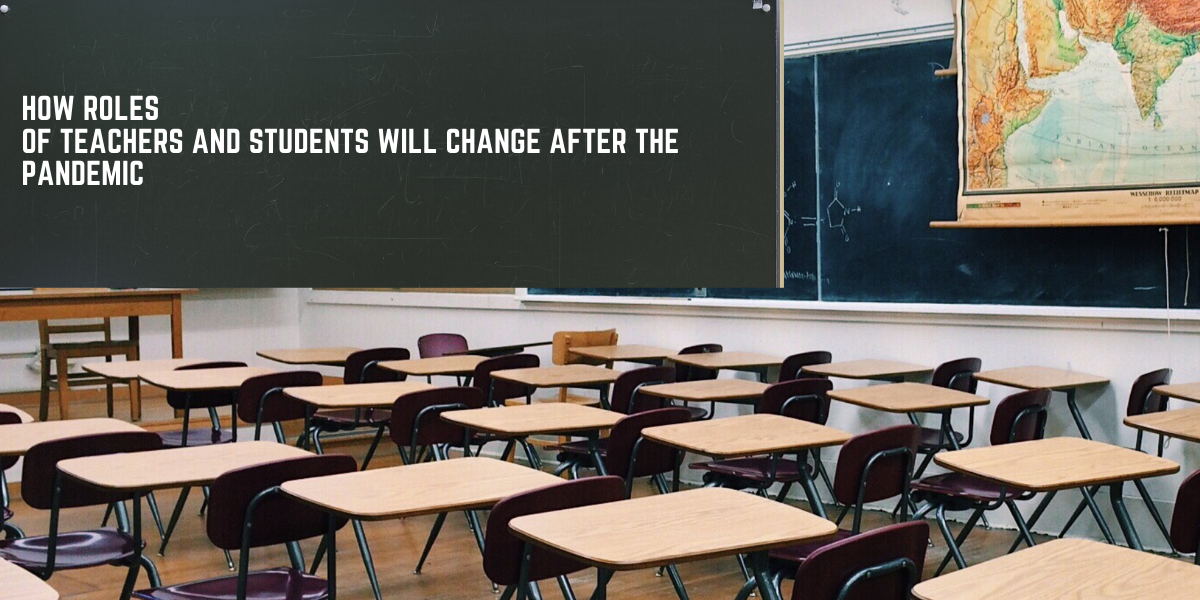The worldwide disruption caused by Coronavirus has already started triggering series of changes across all industries. Education is one of the frontline sectors that has started to witness ground-breaking shifts in the learning strategies and implementations. Since the outbreak of COVID-19, we can see that technology has stepped out to play a key role in educating the future generations. In a world where knowledge is just a click away, the roles of educators, teachers and students are also bound to change.
In this blog, let us explore the far-reaching impacts of the pandemic in redefining the relationship paradigms between teachers and students.
A Globalized Student Generation
Most of the students of the present generation are growing up in a truly globalized world. This generation is defined by technology and is obsessed with instant communication, feedback and constant interaction. Their fear of being alone and missing out is already being bridged by contemporary technologies like WhatsApp, Snapchat and Instant Messenger. This is also a generation that believes in the power of collaboration and innovation to solve world’s biggest challenges. Futuristic institutions like Dream Institute of Technology have been extremely prompt in adopting the latest communication technologies to educate students during the lockdown phase.
New Ways of Communication
The ways of teaching-learning has already going through a phenomenal reformation during this time. Physical classrooms are now replaced by virtual classrooms. The dynamic faculty team at Dream Institute of Technology are equipped to teach and train engineering students via online classes conducted through web conferencing, video conferencing and webinars.The notes and assignments are being uploaded, evaluated and feedback shared between students and teachers through interactive online learning portals. Teachers are also encouraging the students to engage in different creative pursuits and share them via social media platforms.
Education in an Interconnected World
The necessity to maintain social distancing during the pandemic phase has greatly limited student-teacher interaction on the one hand and on the other hand increased learning productivity. An educator is no longer a knowledge holder who imparts his insights to his pupils. Today students can gain knowledge by accessing various formats of technologies including computers, laptops, phones and study tabs. Teachers in the present era need to play the role of a facilitator who can enable students with relevant skills and information to pursue successful careers.
Focus on Life Skills and Competencies
In this disruptive environment, young people require resilience and adaptability – skills that are instrumental for helping students to navigate effectively through this pandemic period. In fact in the near future, some of the essential skills that employers will be looking for will be creativity, innovation, communication and collaboration, alongside sensibility, empathy and emotional intelligence. At Dream Institute of Technology, faculty members focus in building certain key attributes so that future engineers and professionals should be able to work across multi-cultural and multi-disciplinary environments. Both teachers and students need to be in a continuous learning process to cut across diversity, challenges and disruptions that obstruct their advancement.
Ability to Envision the Future
Today an open and transparent exchange of ideas between teachers and students is an absolute necessity for progress. Moreover, remote learning has enabled both teachers and students to collaborate and access untapped possibilities of education. At Dream Institute of Technology, teachers are in the process of building this unique ability to foresee the future for defining an ideal career roadmap for students. Since this institution believes that it is a teacher’s responsibility to stay ahead of time and prepare students for upcoming career opportunities which may not exist today.
